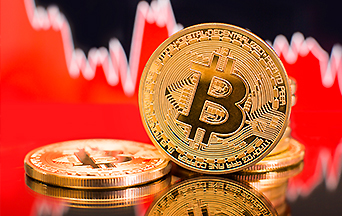
The latest meltdown in the crypto-currency market is one more example of the frenetic intemperance of an economy that values profits over wealth. The FTX crypto-currency exchange failed when spooked investors tried to withdraw $8 billion from their accounts. A classic bank run that followed threw the underfunded exchange into bankruptcy.
The FTX Crypto fiasco is proof that all that glitters is not gold. For a long time, crypto was full of glamor and hype. FTX CEO Sam Bankman-Fried was the poster child of crypto-markets. He exuded confidence and optimism about the currency’s bright future as he organized high-profile events and gave generously to political and other causes. He even spoke of becoming the world’s first trillionaire. Earlier this year, he engineered bailouts of several faltering crypto firms caught in the crossfire of a collapse that lost crypto investors some $2 trillion.
A chastened Mr. Bankman-Fried now admits to errors of judgment. Risky investments and acquisitions brought down the exchange. He could not deliver on the market’s speculative nature, promising a high return on investment. Some also blame the Fed for the collapse because it kept interest rates so low, thus encouraging excessive risk-taking.
Whoever is to blame, the fact remains that crypto-currency is in trouble. The latest breakdown calls into question the wisdom of such investments. By contrast, it reveals the true nature of money, currency and wealth.
Not a Measure of Value
Some people herald crypto-currency as the money of the future. Its blockchain accounting system makes it attractive to investors who value privacy and speed of transaction. Libertarians like its independence from government or banks and see it as a parallel system that will eventually replace modern monies.
 Learn All About the Prophecies of Our Lady of Good Success About Our Times
Learn All About the Prophecies of Our Lady of Good Success About Our Times
These digital assets are created using cryptographic techniques that enable people to buy, sell or trade them securely. Most of them create virtual tokens used as units in these transactions. These tokens, however, can be extremely volatile.
Thus, crypto-currency is not money. It cannot perform the three main functions of money: a stable unit of measure, a means of exchange and a store of wealth. It can mimic these functions but not stably carry them out.
Money needs to be like a yardstick that measures things by inches and feet. Crypto’s value swings keep it from being a measure of value. That is why people think of crypto in terms of its dollar value, not the ever-changing crypto-unit.
Not Exactly a Means of Exchange
Most cryptocurrency is also not currency. By definition, currency is something (like coins, treasury notes, or even digital instruments) that circulates as a medium of exchange. The lack of acceptance of FTX units as a form of payment severely limits their use as a means of exchange. Its digital nature also limits its general usage.
Monies and currencies need stable and official sources to carry them across generations. They also require universal demand for them that can be found when a government declares a unit as legal tender and acceptable as payment for taxes. Thus, the State has always reserved the right to coin money to safeguard the common good over time.
A Digital Commodity
A more accurate description of crypto would be a digital commodity. It stores wealth backed by the fickle demand and trust in its markets. In many cases, it has no extrinsic value beyond its ability to hold investor dollars. Bitcoin’s value lies in its scarcity due to the difficulty and expense of number-crunching, energy-consuming “mining” operations.
Eternal and Natural Law: The Foundation of Morals and Law
It cannot store wealth because it is not wealth, properly speaking. Wealth consists of all assets and property with monetary value or economic utility owned by a person, entity or nation. The great error of the modern economy consists of mistaking money for wealth. Money can represent the value of wealth, but it is not wealth itself.
The Value of Things Without the Things
The concept of wealth should be connected to the real world. Wealth is found in natural resources, commodities and products, land and cottages. It is in cattle, crops and eggs. Wealth consists of all the marvels by which the human mind uses material and intangible things to glorify God.
Money represents a claim on this wealth. The more concrete the claim, the more stable the money. Economist Georg Simmel once defined money as “the value of things without the things.” For an economy to prosper, there must be things.
Cryptocurrency tends to be value without things. It is an abstract claim that can be easily created and destroyed. Because of its abstract nature, it lends itself to the frenetic intemperance of speculation and overleveraging, which triggers its downfall.
The prefix crypto means hidden. Investors insist crypto shields transactions from intrusive government. As the FTX meltdown shows, it also hides the shallowness of its value.
Photo Credit: © 24K-Production – stock.adobe.com

